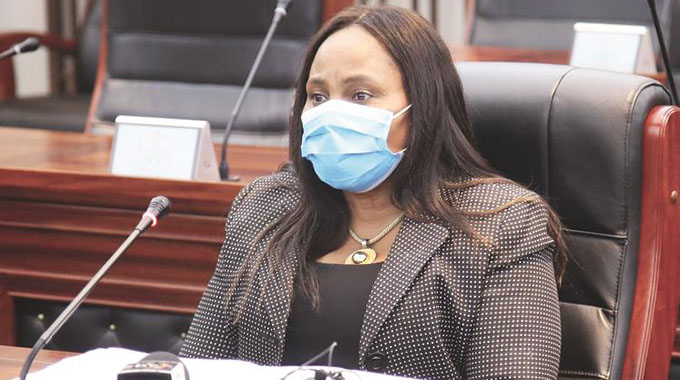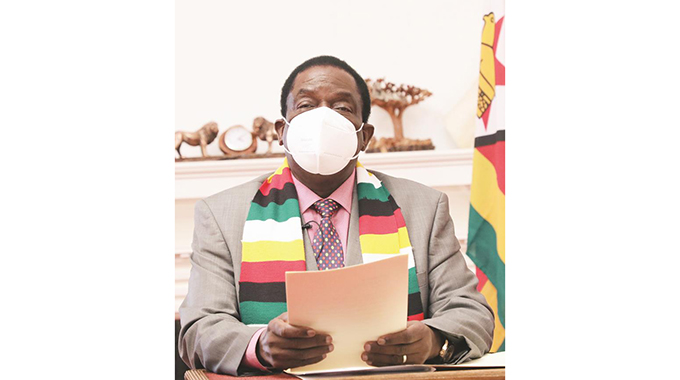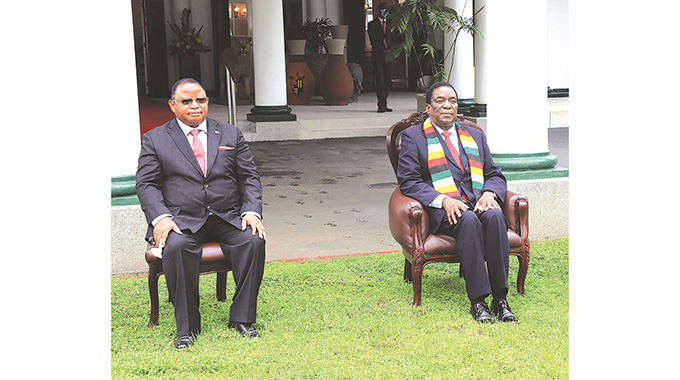Phased reopening for schools unveiled

Mukudzei Chingwere
Herald Reporter
Schools re-open this month in two steps, starting with the three examination classes on Monday March 15, and the rest of the classes a week later on Monday March 22.
The re-opening is now possible following the fall in infection rates and the successful preparations done in all schools to ensure a safe environment.
Teachers for examination classes — Grade 7, Form 4 and Upper 6 — will be expected back at work on March 10, Wednesday next week, to prepare for their pupils a few days later while the rest of the teaching staff returns to work on March 17.
In keeping with social distancing rules, there shall be a rotational attendance of classes.
Information, Publicity and Broadcasting Services Minister Senator Monica Mutsvangwa announced the phased reopening in Harare last night after the Cabinet meeting.
The decision to set the dates for the re-opening follows an encouraging report by the Government last week that preparations for resumption of classes have reached an advanced stage following inspections done to ensure that schools are compliant with Covid-19 control protocols to avoid a spike in infections.
Ministry of Primary and Secondary Education officials, working in conjunction with the Ministry of Health and Child Care, had to check that the measures, informed by World Health Organisation guidelines, were in place.
Under the protocols, classes must be smaller with more teachers are being employed to allow this.
So the Government has been on a whirlwind campaign to employ qualified but jobless teachers to allow the splitting of classes.
A total of $600 million was set aside by the Government and disbursed to needy schools that had to upgrade their sanitation, enabling them to reopen safely without risking a spike in infections.
To overcome lost teaching time, there will be compressing of the syllabus.
Outlining the approved measures, Minister Mutsvangwa said: “There shall be rotational school attendance in classes where learners cannot exercise social distancing. On the days when learners are not at school, they will be engaged through strategies such as open distance learning and e-learning.
“Relevant modules are already under production. Among the catch-up strategies, all continuing classes will start with 2020 work.
“Syllabuses have been compressed to facilitate accelerated coverage. Both primary and secondary school levels will follow three levels of accelerated compressed syllabus coverage,” said Minister Mutsvangwa.
Cabinet was briefed by Health and Child Care Minister, Vice President Constantino Chiwenga on the vaccines being sourced to immunise at least 10 million citizens and the vaccination programme now being implemented.
With the ongoing inoculations targeting frontline workers from the first delivery, more vaccines are arriving for the next groups and more are being procured.
Minister Mutsvangwa reiterated that the vaccination is voluntary and free.
Zimbabweans are being encouraged to remain vigilant and protect themselves, their loved ones, communities and the entire nation by following the medical advice and the precautionary protocols.
Since the last Cabinet meeting, President Xi Jinping of the People’s Republic of China had donated a further 200 000 doses, taking China’s total donation of vaccines to 400 000 doses and in addition a consignment of 600 000 doses purchased from China is expected soon.
The Russian Federation, India and the United Kingdom have also pledged donations of vaccines, with Russia promising 20 000 doses of the Sputnik V Vaccine and India promising 75 000 doses.
In preparation for an influx of the vaccines, Minister Mutsvangwa said the Government has set up a team of experts to monitor its effectiveness while also reporting feedback from those vaccinated.
“Government has established a team of experts drawn from academia, the Ministry of Health and Child Care, and research and clinical practitioners to monitor the effectiveness of the vaccines.
“The team’s recommendations will guide the country’s vaccination rollout programme at all times.
“No major adverse reactions have been recorded to date, except for a single case of a minor reaction which was manifested in a rash,” she said.
With over 25 000 people now vaccinated, just one minor reaction would be considered excellent.







Comments